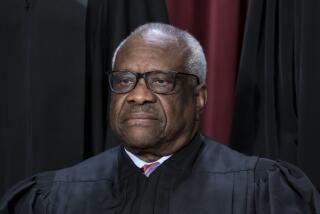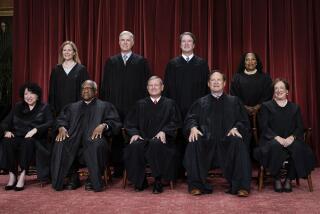Commerce Dept. Travel Audit
- Share via
As inspector general of the U.S. Department of Commerce, I am writing in response to “Audit Cites Travel Costs of Commerce Secretary” (Jan. 21), which discussed an audit report issued by my office last September, “Departmental Travel Expenses Need Better Control and Oversight.” I am concerned that the article’s description of the audit report was inaccurate and misleading in a number of respects.
I would note that the audit in question was a routine performance review of certain aspects of the department’s administration of travel expenses, which was conducted in the normal course of business. It was not a “confidential” report, as characterized by the article; indeed, copies of the report have been available for release to the public since shortly after it was issued in September, and the results of the audit were discussed in detail in the inspector general’s semiannual report to the Congress dated Sept. 30.
The specific (and stated) purpose of the audit was to evaluate the internal controls applicable to systems used to authorize and approve departmental travel and travel expenses, and to assess compliance with federal travel regulations and related commerce guidelines. We identified and reported a number of significant problems, including transfers of funds between agencies to pay for travel; employee misuse of the government American Express card; inadequate action by the department to monitor and collect payment on outstanding travel advances to consultants; and the inability of the department’s servicing agency to consistently generate reliable travel expense data.
Contrary to the clear suggestion of your article, however, the audit did not purport to be a review of Commerce Secretary Ron Brown’s travel, and did not examine specific travel expenses of Brown or his staff. Under the circumstances, I believe it was unfair and inaccurate for you to state that our report “sharply criticizes” Brown or to suggest that it questions his personal role in managing departmental travel.
Finally, I am greatly concerned by your implication that employee misuse of government American Express cards has resulted in the improper expenditure of public funds. While correctly reporting details of our audit findings regarding delinquent accounts, use of cards for personal purchases and cash advances unrelated to official travel, the article failed to make clear that individual employees--not the federal government--are personally liable for all purchases made with the American Express travel card. Accordingly, it would be entirely wrong for readers to conclude that any nonofficial purchases have been charged to taxpayers.
Our audit is currently being reviewed in accordance with the department’s established procedures for resolution of audit finds and recommendations, and we fully expect that all issues raised in our report will be satisfactorily resolved.
FRANCIS D. DeGEORGE
Washington
More to Read
Sign up for The Wild
We’ll help you find the best places to hike, bike and run, as well as the perfect silent spots for meditation and yoga.
You may occasionally receive promotional content from the Los Angeles Times.






